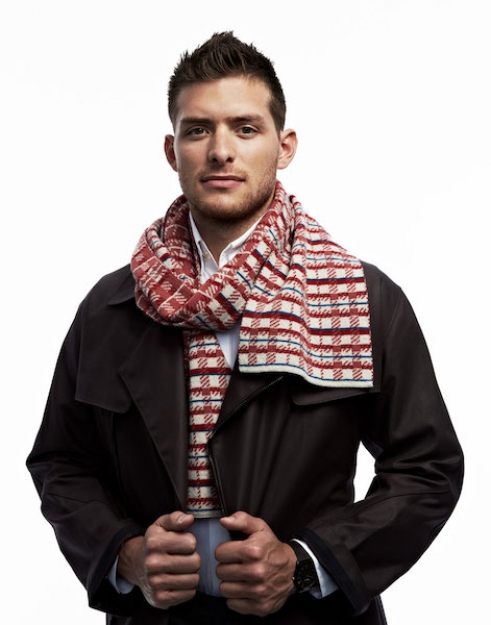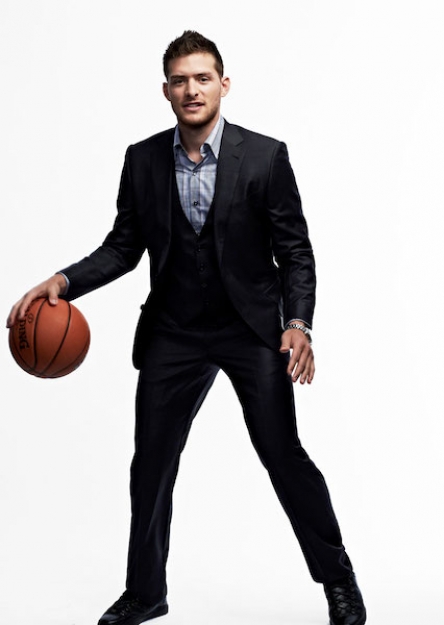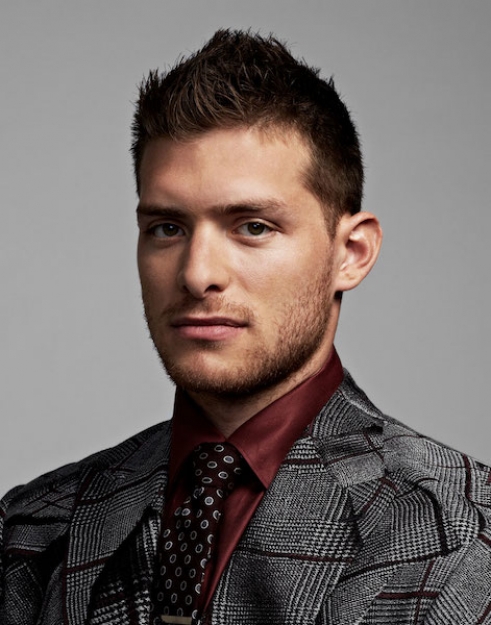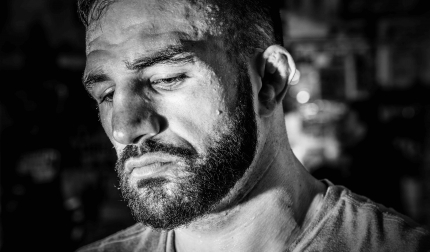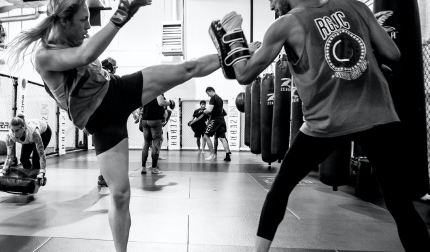Most kids who love basketball go to sleep at night dreaming of becoming an NBA star. Gal Mekel would actually set his alarm for the middle of the night to begin his NBA dreaming.
“In Israel,” Mekel says, “the NBA games come on television in the middle of the night—three, sometimes four o’clock in the morning. And Michael Jordan was the guy. I always wanted to watch MJ.”
Mekel. who had a collection of 30 NBA jerseys when he was a kid, may have dreamed about one day playing in basketball’s most elite league, but it wasn’t his actual goal. “The NBA was definitely a dream, but I was even shy with myself to think about. The goal was always to play in the Israeli League.”
It wasn’t until Mekel’s Israeli national teammate, Omri Casspi, was drafted by the Sacramento Kings and made the team in 2009, that Israeli players thought the NBA was even a remote possibility. Casspi’s early success in the league meant that NBA scouts had to start paying closer attention to the rising level of talent.
“Before Omri did it, we were afraid to even say “NBA: out loud, because no one had made it,” Mekel says. “Omri opened the door. For me even two years ago, it was still a dream but wasn’t realistic. Then, last summer I had a workout with the Utah Jazz that went very well, so the dream started to get closer. When you see you can do something, you get hungry and you want to chase it.”
After several impressive tryouts for NBA teams, Mekel signed a three-year deal with the Dallas Mavericks and promptly received hundreds of texts and calls from well-wishers back home. At age 25, Mekel feels he is much better prepared to make a go at it with elite competition.
“First of all, playing basketball in Europe is very different. You don’t have the high school, college programs like you do here. When I was six years old, I was already playing for a club team in Europe. All of the professional teams have youth divisions.”
Forgoing the European pro life at 18, Mekel came to the United States to play college basketball at Wichita State University. “It’s very hard when you finish with the junior/under 18 team in Israel,” says Mekel. “You then have to go into the pros, and people expect you to be ready. But it’s impossible. You’re starting to play against very experienced men. For me, the college stage was perfect; it was the best step between junior teams and professional teams. Besides the basketball, I really grew. It was the first time for me to be out of the country on my own. I became really mature, and I worked extremely hard. I got better with my athleticism, my physicality. Those two years pushed the level of my game.”
For Mekel, turning pro early has caused a lot of talented players to lose their way. “Mentally, so many guys get lost in the shuffle in those first two or three years,” he says. “They sit on the bench, they don’t play, even if they were very good at the junior level, they need those few years to become a man. Many guys lose their careers. Plus in Israel, at that age, you have to report to the army for military service every day. It’s another pressure.”
Mekel served his mandatory military service in Israel after returning from college. He even felt that the basic training helped improve his fitness. “They were very good to me,” he says. “As a national team player, they would let me attend the practices and games I needed to.
Winning two professional championships in Israel make Mekel a household name to kids in Israel that have the same dream he once had wearing his NBA jerseys. But signing with the Mavericks has pushed his support to a whole new level. “After you make the NBA, everything becomes so much bigger,” he says. “You feel like everyone is behind you, and that you’re doing something for your country.”
Omri Casspi has already told Mekel of the support that he is likely to receive from Jewish communities around the country. It seems like every city brings a new fan base. But for Mekel, there’s one thing he looks forward to the most about the pro life here in the United States. “In the NBA, you have a lot of noise. It’s a business. It’s very flashy. But for me, it’s about basketball. I want to show that I belong on this level. I want to be able to play my game.”


